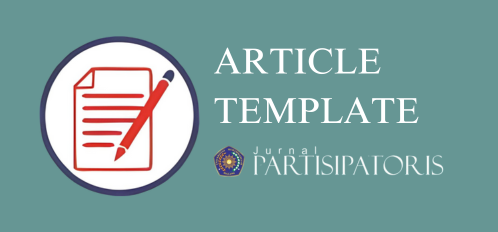Identity Politics Practice Through Dominant Discourse "Sitiarjo Village As A Christian Village" in Local Politics Dynamics
Keywords:
Identity Politics, Christian Village, Local Politics Dynamics.Abstract
GKJW Christian figures are groundbreakers or founders of Sitiarjo Village, so that the GKJW Christians have a higher position compared to other religions followers. On this basis, many policies are considered religious bias. The purpose of this research is to explain the practice of identity politics in local politics in Sitiarjo Village. This study uses the identity politics concept. This research method is a qualitative with case study approach. Data analysis techniques used is pattern matching. The results of this study state that identity politics in the local politics dynamics in Sitiarjo Village seems to be getting stronger because anyone who wants to get involved in politics must consider this religious issue. Because in the view of the society, GKJW Christians must receive top priority to enter into structural positions in the village government, including becoming village head. This made the communalism issue, such as religious sentiment, even stronger in Sitiarjo Village.
Downloads
References
Ardiyanti, Dwi; Anastasia Meilin Gita Permata Laia; and Muhammad Hafiz Nabiyyin. 2019. Demokrasi, Penegakan Hukum dan Politik Identitas di Indonesia: Studi Kasus Minoritas Kaum Tionghoa dalam Kasus Meiliana. Journal of Resolusi Vol. 2 No. 2 December 2019.
Castells, Manuel. 2003. The Power of Identity: The Information Age, Economy, Society and Cultural. Australia: Blacwell Publishing.
Lefaan, Ave; Heru Nugroho; and Mudiono. 2012. Etnosentrisme dan Politik Representasi di Era Otonomi Khusus Papua. Majalah Ilmiah Pembelajaran Journal, Special Edition 2012.
Lestari, Julita. 2020. Pluralisme Agama di Indonesia (Tantangan dan Peluang Bagi Keutuhan Bangsa). Journal of Religious Studies, Volume 1, Nomor 1, Juni (2020).
Menchik, Jeremy. 2016. Islam and Democracy in Indonesia: Tolerance Without Liberalism. New York: Cambridge University Press.
Nasrudin, Juhana and Ahmad Ali Nurdin. 2018. Politik Identitas dan Representasi Politik (Studi Kasus pada Pilkada DKI Periode 2018-2022). Journal of Studi Agama-Agama, Volume 1 Nomor 1, 2018: 34-47.
Peralihan, Hotmatua. 2019. Islam dan Demokrasi (Menguatnya Politik Identitas Ancaman Kemanusiaan di Indonesia). Filsafat dan Teologi Islam Journal, Vol. 10 No. 1 (January-Juny) 2019, p. 63-83.
Ridwan. 2015. Problematika Keragaman Kebudayaandan Alternatif Pemecahan (Perspektif Sosiologi). Madaniyah Journal, Volume 2 Edisi IX Agustus 2015.
Soenjoto, Palupi Purbatin Wening. 2019. Eksploitasi Isu Politik Identitas Terhadap Identitas Politik Pada Generasi Mileneal Indonesia di Era 4.0. Journal of Islamic Studies and Humanities Vol. 4, No. 2 (2019) 187-217. DOI: http://dx.doi.org/10.21580/jish.42.5223.
Downloads
Published
How to Cite
Issue
Section
License
Copyright (c) 2021 Jurnal Partisipatoris

This work is licensed under a Creative Commons Attribution-ShareAlike 4.0 International License.
Authors who publish with Jurnal Partisipatoris agree to the following terms:
- For all articles published in the Jurnal partisipatoris, copyright is retained by the authors. Authors give permission to the publisher to announce the work with conditions. When the manuscript is accepted for publication, the authors agree to the automatic transfer of non-exclusive publishing rights to the publisher.
- Authors retain copyright and grant the journal right of first publication with the work simultaneously licensed under a Creative Commons Attribution-ShareAlike 4.0 International License that allows others to share the work with an acknowledgment of the work's authorship and initial publication in this journal.
- Authors are able to enter into separate, additional contractual arrangements for the non-exclusive distribution of the journal's published version of the work (e.g., post it to an institutional repository or publish it in a book), with an acknowledgment of its initial publication in this journal.
- Authors are permitted and encouraged to post their work online (e.g., in institutional repositories or on their website) prior to and during the submission process, as it can lead to productive exchanges, as well as earlier and greater citation of published work (See The Effect of Open Access).











